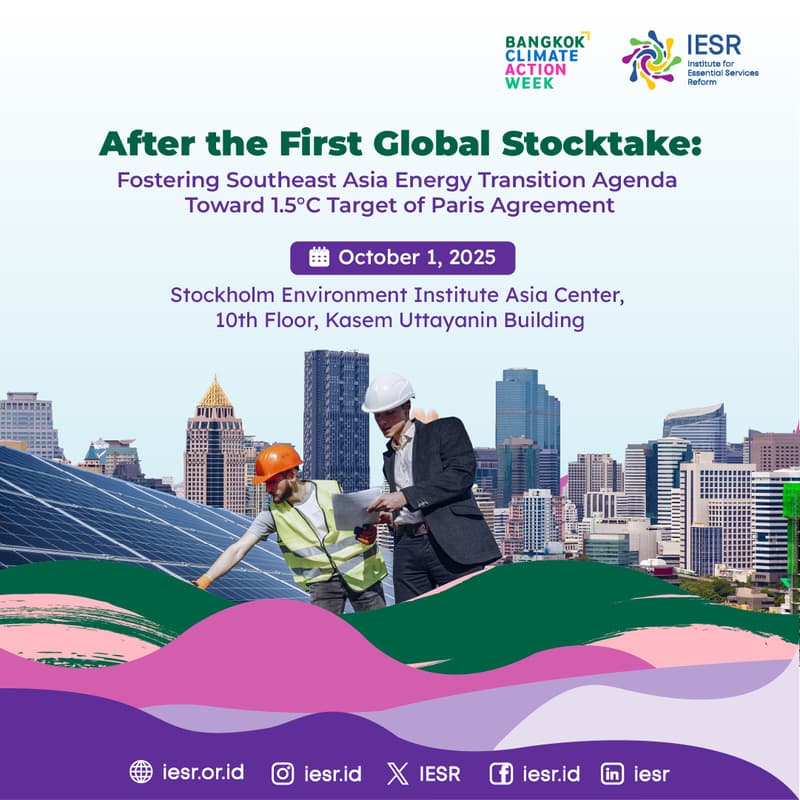

After the First Global Stocktake: Fostering Southeast Asia Energy Transition Agenda toward 1.5°C Target of Paris Agreement
The first Global Stocktake (GST) in 2023 highlighted the urgent need for systemic transformation to limit global temperature rise to 1.5°C by 2050. This requires not only scaling up renewable energy and phasing out unabated fossil fuels, but also rethinking land use, industrial processes, and governance systems. With a global emissions gap of around 24 GtCO₂e projected by 2030, current Nationally Determined Contributions (NDCs) remain insufficient to meet the Paris Agreement goals.
Southeast Asia plays a pivotal role in this global effort. The region’s rapidly expanding economies, populations, and energy demand—projected to grow 2.6 times by 2050 compared to 2022—will decisively shape whether the Paris targets remain within reach. This poses a dual challenge: how to meet rising energy needs in ways that ensure inclusive development, while at the same time reducing greenhouse gas emissions. Current NDC pledges from the region remain off track from the 1.5°C pathway, underscoring the need for ambitious, coordinated policy action and regional cooperation.
In response, the Institute for Essential Services Reform (IESR) will convene a panel discussion titled: “After the First Global Stocktake: Fostering Southeast Asia Energy Transition Agenda toward 1.5°C Target of Paris Agreement.”
This session will bring together policymakers, experts, and stakeholders to discuss strategies and policies for accelerating the energy transition in Southeast Asia, and to explore opportunities for enhanced regional collaboration in achieving the Paris climate objectives.
This event is open to the public and free of charge.
For attendance confirmation or questions, please email Benita Sashia [email protected] or Aditia Pramusakti [email protected].